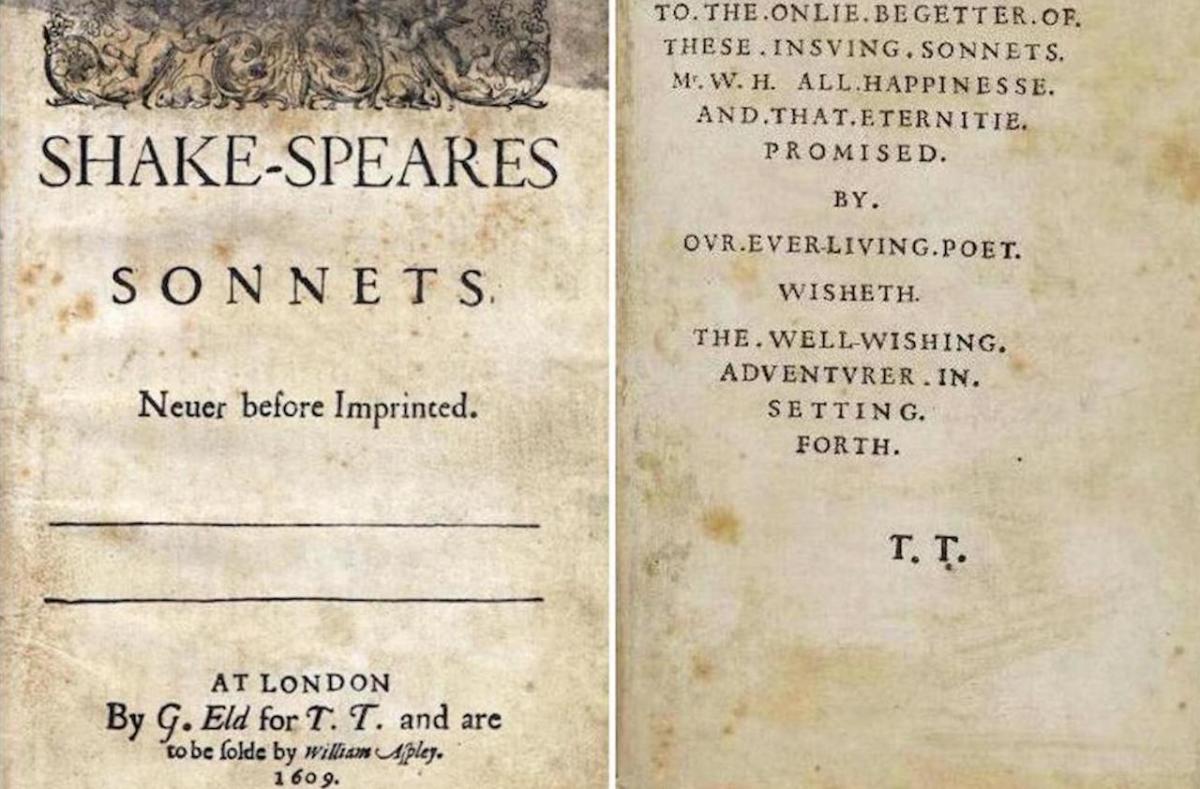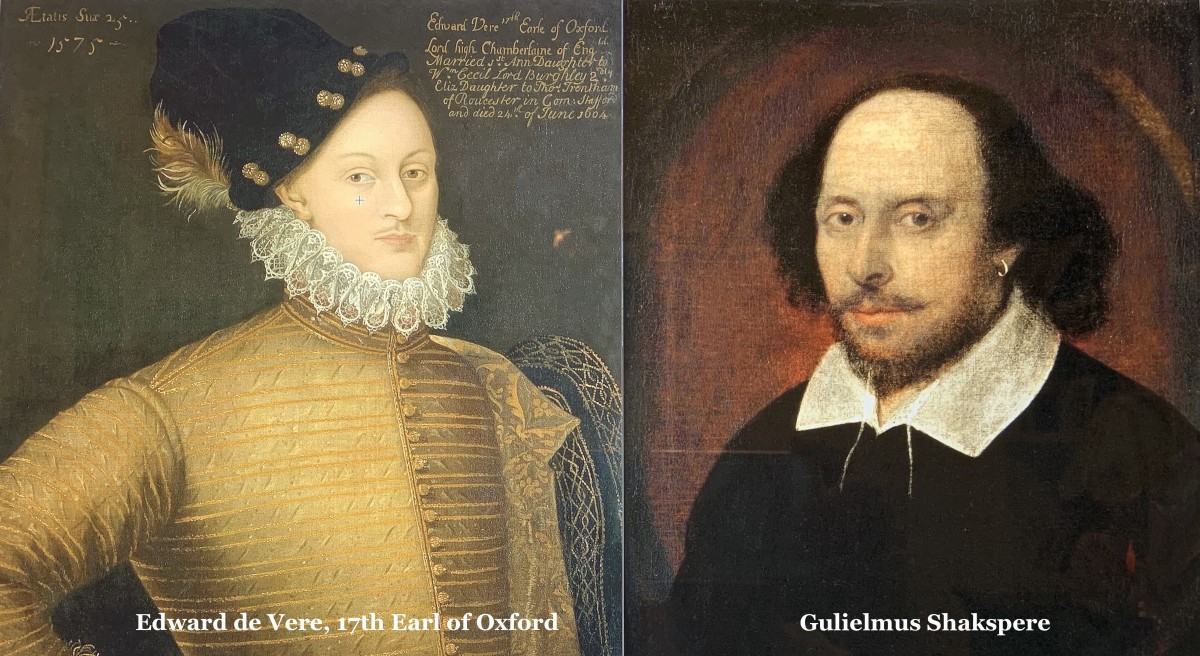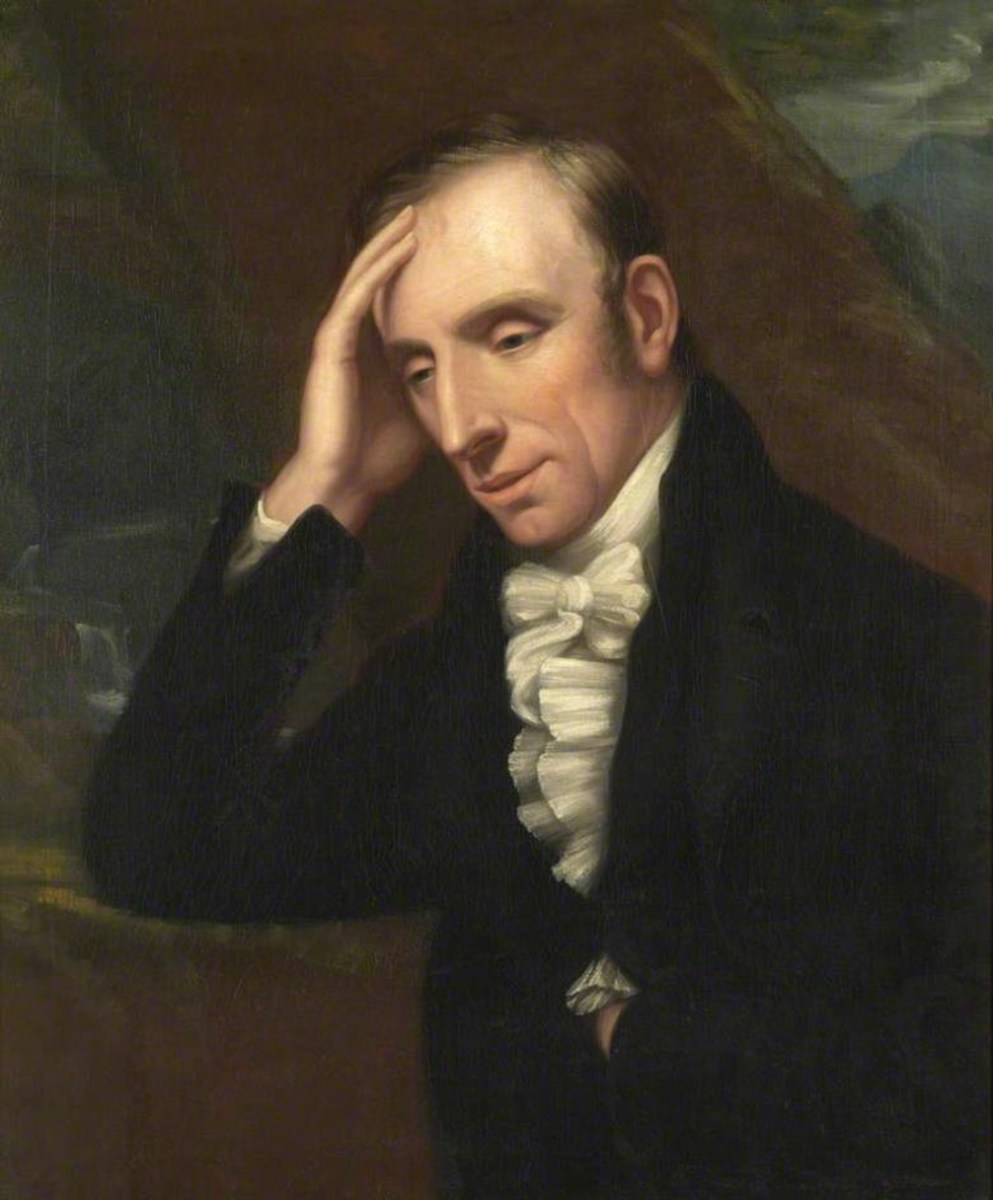Shakespeare Sonnet 61 "Is it thy will, thy image should keep open"

Introduction and Text of Sonnet 61 "Is it thy will, thy image should keep open"
In sonnet 61 from the classic Shakespeare 154-sonnet sequence, the speaker wishes to blame his lackadaisical attitude on the muse. He seems to wish he could control the muse in ways that ultimately he knows are not possible or even desirable.
As the speaker muses on his relationship with the inspiring muse, he eventually comes around to the mundane fact that he alone is responsible for his actions. The speaker knows he must take up the pen and forge ahead, with or without the supposed inspiration of the imagined muse.
Sonnet 61 "Is it thy will, thy image should keep open"
Is it thy will, thy image should keep open
My heavy eyelids to the weary night?
Dost thou desire my slumbers should be broken,
While shadows like to thee do mock my sight?
Is it thy spirit that thou send'st from thee
So far from home into my deeds to pry,
To find out shames and idle hours in me,
The scope and tenor of thy jealousy?
O, no! thy love, though much, is not so great:
It is my love that keeps mine eye awake:
Mine own true love that doth my rest defeat,
To play the watchman ever for thy sake:
For thee watch I, whilst thou dost wake elsewhere,
From me far off, with others all too near.
Shakespeare Sonnet Titles
In the Shakespeare 154-sonnet sequence, the sonnets are numbered but not titled; that lack of titling is the case with most sonnet sequences. Therefore, each sonnet's first line must serve as its title in commentaries about the sonnet. According to the MLA style guide, "When the first line of a poem serves as the title of the poem, reproduce the line exactly as it appears in the text." APA, the style guide used by this site, does not address this issue.
Commentary on Sonnet 61 "Is it thy will, thy image should keep open"
As he experiences difficulty falling asleep, the speaker in sonnet 61 "Is it thy will, thy image should keep open" is finding that his muse is playing coy once again, and he wonders where she is, as he poses three questions only he can answer.
First Quatrain: Questioning the Muse
Is it thy will, thy image should keep open
My heavy eyelids to the weary night?
Dost thou desire my slumbers should be broken,
While shadows like to thee do mock my sight?
Shakespeare sonnet 61 sonnet 61 "Is it thy will, thy image should keep open" finds the speaker commencing with an opening yes/no question, asking if it is the wish of his muse to keep him from sleeping. The speaker is attempting to ascertain if it is the muse’s desire that even though he is exhausted, he should lie awake envisioning her, instead of drifting off to much-needed sleep.
The speaker is refusing to take all the fatigue on himself, assigning it to the "weary night." His own mental awareness streams out into the environment as he attempts to brush the muse image from his brain. He is examining his melancholy in order to determine the cause, as he explores the images that are likely sustaining his ambiguity.
The speaker then poses his second question that resembles the first; he now wonders if the muse wants to break his sleep and offer only hints that fail to complete his own fledging thoughts. He feels that his muse is even mocking his efforts, and he must confront the effrontery of such action.
Although this query bears a strong resemblance to the first, the second question contains a darker estimation of the muse. Instead of simply being an image, it turns into a bunch of "shadows," and instead of simply being kept awake by the shadows, those shadows "mock [his] sight."
Second Quatrain: Insulting the Muse
Is it thy spirit that thou send'st from thee
So far from home into my deeds to pry,
To find out shames and idle hours in me,
The scope and tenor of thy jealousy?
The third question professes scathing implications. The speaker queries his muse, whom he seems to insult by accusing her of being "far from home" when he knows intuitively that she is always within his own genuine self, even if she sends her spirit to look into his "shames and idle hours."
The question implies that the speaker is feeling guilty vis-à-vis his own lax attitude toward his work. Nevertheless, it is much easier and also face-saving to lay the blame for his own lackadaisical attitude on the muse’s absence.
In this way, the speaker is asserting to the muse that if she would remain with him and stop this constant fleeing, he would always be able to create. Thus he lays the blame for his faltering at the feet of his muse. It is her absence that is the problem. He then furthers his criticism by calling that absence the result of the muse's jealousy.
Third Quatrain: Accepting Responsibility
O, no! thy love, though much, is not so great:
It is my love that keeps mine eye awake:
Mine own true love that doth my rest defeat,
To play the watchman ever for thy sake:
The speaker then answers his earlier queries, as he recognizes that the liability is all his alone. He cannot permit himself to be influenced by a muse that he can reject at will; he can receive only a certain amount of inspiration from his muse because "[the muse’s] love, though much, is not so great" as his own.
The speaker then concedes that he is the only one who is responsible for his own inspiration: "It is my love that keeps mine eye awake." He says, "Mine own true love that doth my rest defeat." The speaker accepts his own culpability in his lackadaisical behavior.
The Couplet: Reason and Accountability
For thee watch I, whilst thou dost wake elsewhere,
From me far off, with others all too near.
The couplet finally has the speaker again divulging that he has become too dependent on a fake image of the muse, as if she were capable of "wak[ing] elsewhere" and "with others all too near."
By stating flatly his own absurd image, the speaker is now giving it an airing that will permit him to overcome his lame excuses and embrace his desired accountability for his own behavior.

Related Shakespeare Information
- Introduction to the Shakespeare 154-Sonnet Sequence - The Shakespeare 154-sonnet sequence offers a study of the mind of a poet. The first 17 have a speaker persuading a young man to marry and produce lovely offspring. Sonnets 18–126 address issues relating to talent and art creation.
- "William Shakespeare": Nom de Plume of Edward de Vere, 17th Earl of Oxford - The Shakespeare controversy continues to play out between the Oxfordians, who argue that the "Shakespeare" writer was Edward de Vere, 17th Earl of Oxford, and the Stratfordians, who insist that Gulielmus Shakspere of Stratford-upon-Avon remains the writer of that canon.
Commentaries on Other Shakespeare Sonnets
- Shakespeare Sonnet 1 "From fairest creatures we desire increase." DiscoverHubPages. Original: February 13, 2023. Updated: January 11, 2024. - EXCERPT: The Shakespeare sonnet sequence features 154 Elizabethan sonnets (also known as English or Shakespearean). The first sonnet "From fairest creatures we desire increase" begins the focus on the young man, and the speaker will continue that engagement in sonnets 1-17.
- Shakespeare Sonnet 4 "Unthrifty loveliness, why dost thou spend." DiscoverHubPages. Original: February 26, 2023. Updated: January 10, 2024. - EXCERPT: Sonnet 4 from"The Marriage Sonnets" in the classic Shakespeare 154-sonnet sequence, find the speaker engaging a finance metaphor to enhance the drama of his argument.
- Shakespeare Sonnet 5 "Those hours, that with gentle work did frame" DiscoverHubPages. Original: February 27, 2023. Updated: January 10, 2024. - EXCERPT: The speaker of Shakespeare sonnet 5 continues fashioning his little dramas, persuading the young man that he must marry and procreate to preserve his youth and thus attain a certain imagined version of immortality.
- Shakespeare Sonnet 18 "Shall I compare thee to a summer’s day?" Owlcation. Original: October 12, 2023. Updated: January 22, 2024. - EXCERPT: Shakespeare sonnet 18 "Shall I Compare Thee to a Summer’s Day" is one of the bard’s most widely anthologized—and most widely misunderstood—sonnets. There is no person in this sonnet: the speaker is not comparing/contrasting the beauty of nature and the beauty of a paramour.
This content is accurate and true to the best of the author’s knowledge and is not meant to substitute for formal and individualized advice from a qualified professional.
© 2024 Linda Sue Grimes


